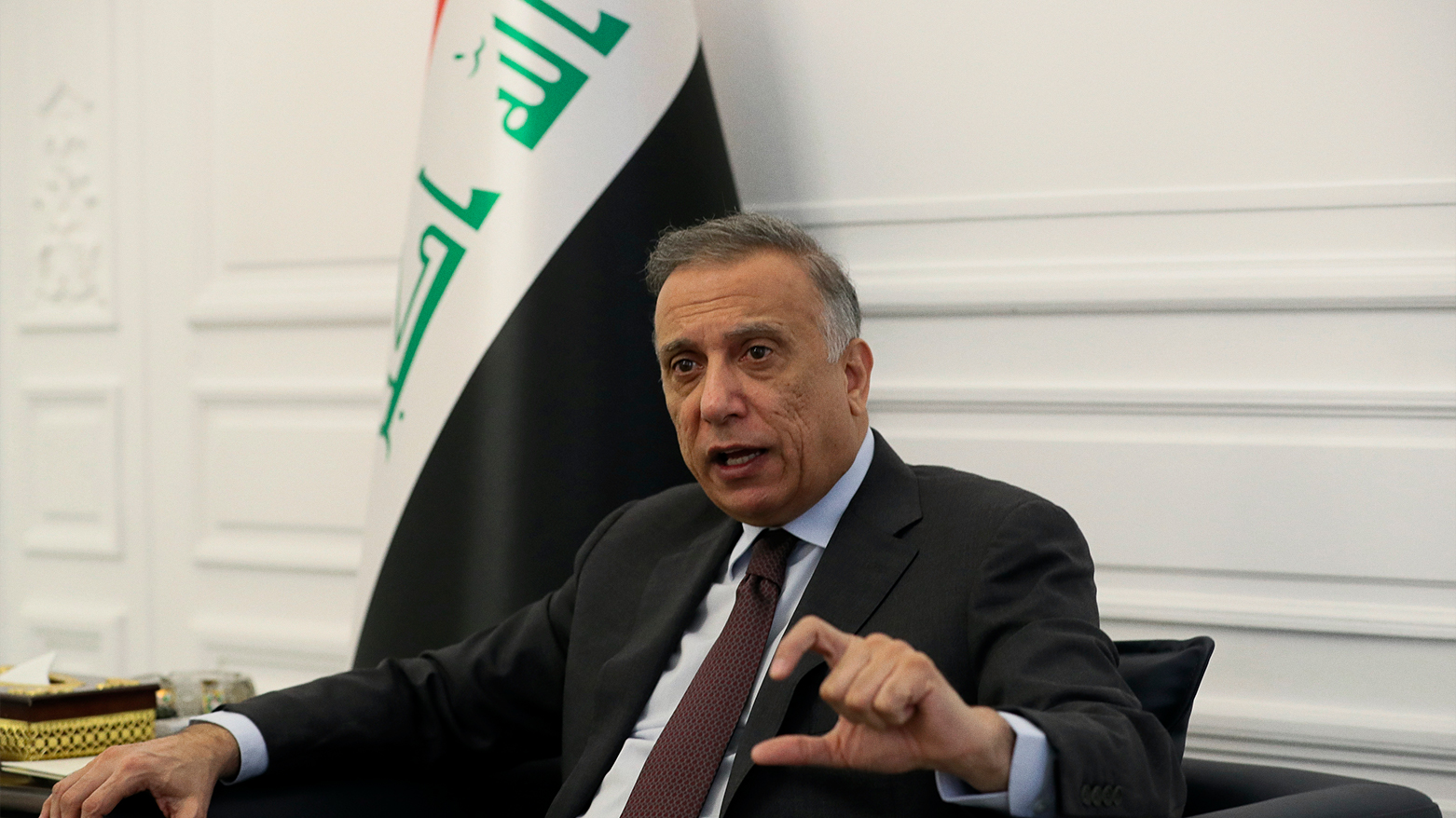'Confederalism Can Resolve Baghdad-Erbil Disputes,' Says Former Iraqi PM
Former PM Mustafa al-Kadhimi urges Iraq to adopt a presidential system and proposes a confederal model to protect Kurdish rights. He criticizes the current parliamentary setup as unstable and calls for structural reforms, fixed electoral laws, and greater accountability.

By Kamaran Aziz
ERBIL (Kurdistan24) – Former Iraqi Prime Minister Mustafa al-Kadhimi has called for a sweeping transformation of Iraq’s political structure, advocating for the adoption of a presidential system while proposing a confederal arrangement to safeguard Kurdish rights within the new framework.
In a televised interview with Alsumaria TV, al-Kadhimi criticized the current parliamentary system as a failure that has fueled instability in Iraq and elsewhere. “The parliamentary system has not succeeded in Iraq since the monarchy and has been a source of instability—not only here but in other countries as well,” he said.
He argued that under a presidential system, citizens could directly hold their leader accountable. “This system means that voters give a mandate to a member of parliament to speak on their behalf, whereas in a presidential system, the voter can directly hold the president accountable if he fails to meet their aspirations.”
Al-Kadhimi emphasized that many Iraqis support a shift to a presidential system, though not all are willing to state it publicly. He underscored the urgent need for systemic reform to restore public trust in governance.
Acknowledging potential concerns from the Kurdistan Region, he proposed a confederal or broader federal arrangement to ensure the preservation of Kurdish autonomy. “The primary group affected by a presidential system would be the Kurds,” he said, noting that Kurds have a significant stake in both Baghdad and the Kurdistan Region’s governance.
He elaborated, “We share two key aspects with the Kurds: foreign policy and national defense.” Drawing a comparison to Scotland’s experience in the United Kingdom, al-Kadhimi suggested that a similar model for Iraqi Kurdistan could resolve persistent disputes between Erbil and Baghdad.
Proposing a transition from federalism to confederalism, he stated, “This approach would resolve pending issues like salary disputes,” adding that any reform must be accompanied by political assurances to the Kurdish people.
Addressing the broader electoral landscape, al-Kadhimi voiced deep concerns over Iraq’s democratic process. “We noticed that the upcoming electoral process lacks real competition, voter participation is expected to be low, and political projects are absent. Furthermore, financial influence is encroaching upon the democratic process, creating a mafia-like dynamic in elections.”
He criticized the frequent redrafting of electoral laws to serve the interests of ruling blocs. “There should be a fixed electoral law that only changes according to fundamental shifts. I refuse to be a mere witness to a flawed election.”
Reflecting on the 2021 elections, al-Kadhimi revealed that he chose not to participate despite controlling the state’s executive apparatus. “I chose not to run so as not to be accused of exploiting public funds or state institutions.”
Al-Kadhimi condemned Iraq’s reliance on consensus politics, warning that it undermines democracy. “There is no democracy without both a ruling party and an opposition,” he stated. “Some claim Baghdad belongs only to Sunnis, others say it belongs to Shiites—this is a hateful discourse.”
He clarified that while he does not advocate for an election boycott, he holds serious reservations about the current mechanisms. “Our political system was born deformed, and it produced a deformed experience. The consensus-based system in Iraq and Lebanon has proven to be a failure.”
Calling for deep structural reforms rather than an overthrow of the system, he said, “We need to change our political system—not by toppling it, but by reforming and correcting it.”
Al-Kadhimi expressed admiration for Iraq’s monarchical system, claiming it was the most stable. “The parliamentary system failed and ultimately led to the 1958 revolution,” he remarked.
His vision for Iraq includes a presidential system with a stable parliament and a prime minister who is insulated from constant political threats. He reiterated the importance of reassuring the Kurds through the possibility of granting a confederal status.
“The shift to a presidential system must be a purely Iraqi decision,” al-Kadhimi concluded. “Betting on a foreign decision is a grave mistake, as if we are politically immature. We need to enter a new dialogue and forge a new social contract.”
He stressed that a presidential system empowers citizens by giving their votes direct influence. “If the president fails, the people can hold him accountable in the next term. But in the parliamentary system, you give your vote to a member of parliament and then just wait.”
Citing the October (Tishreen) protests, he said they sent a powerful message to Iraq’s political elite. “Most political forces support the presidential system—but they do so timidly.”